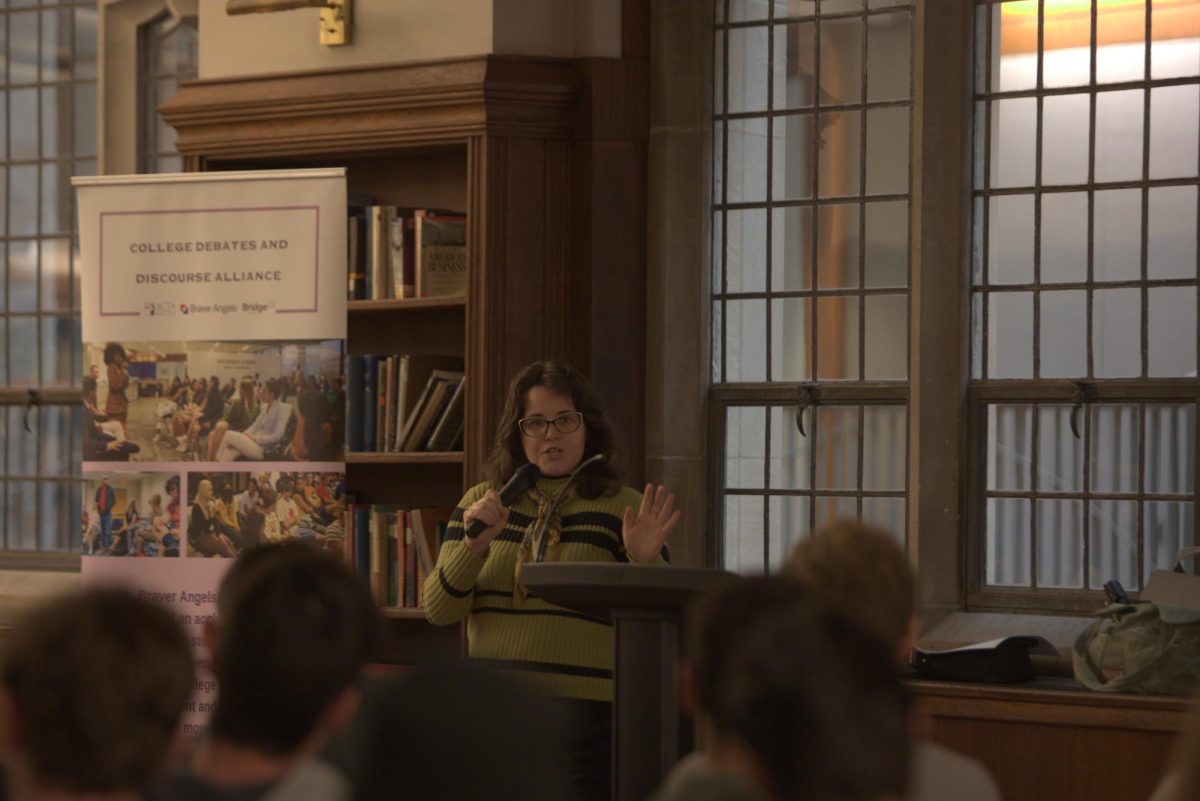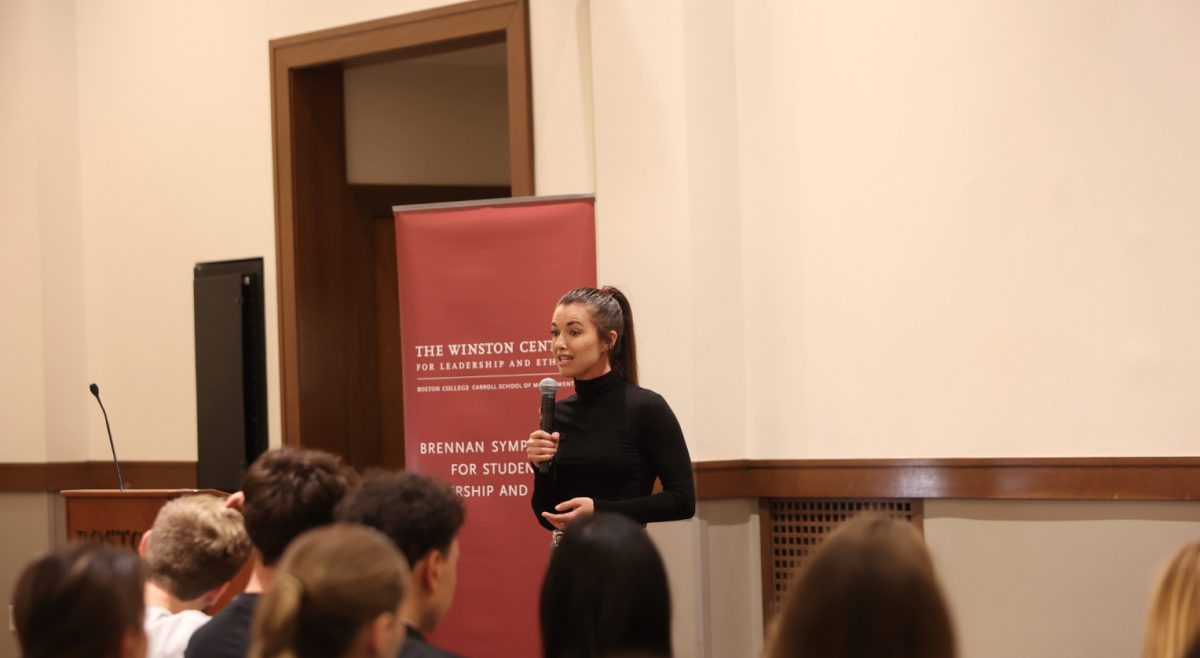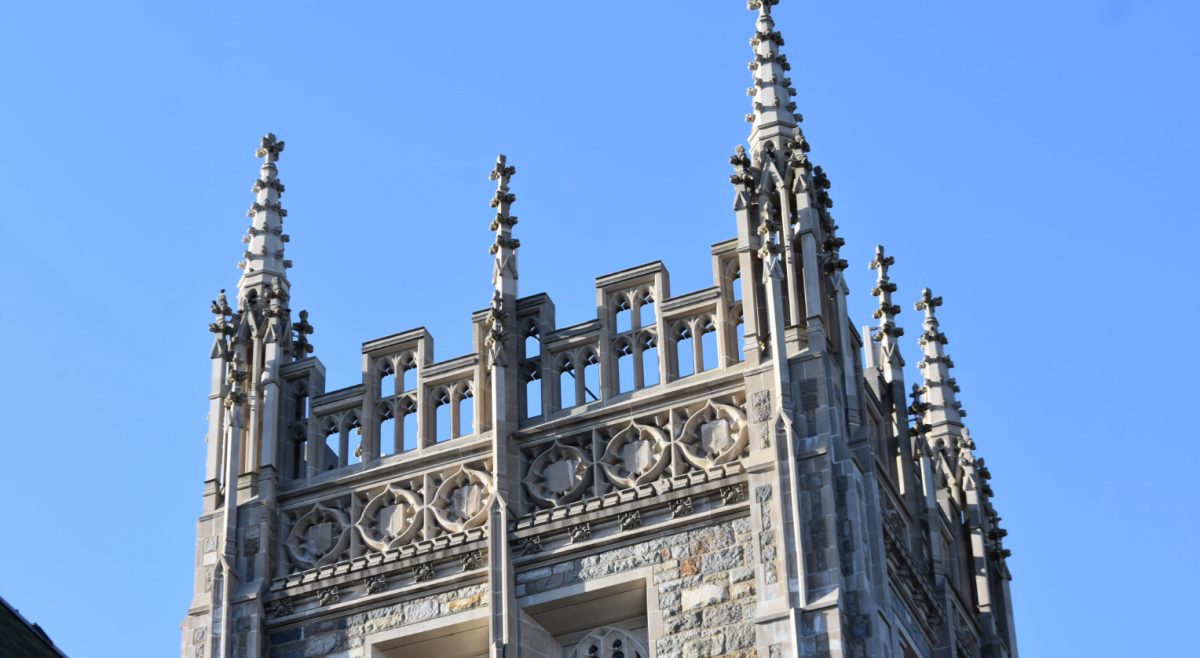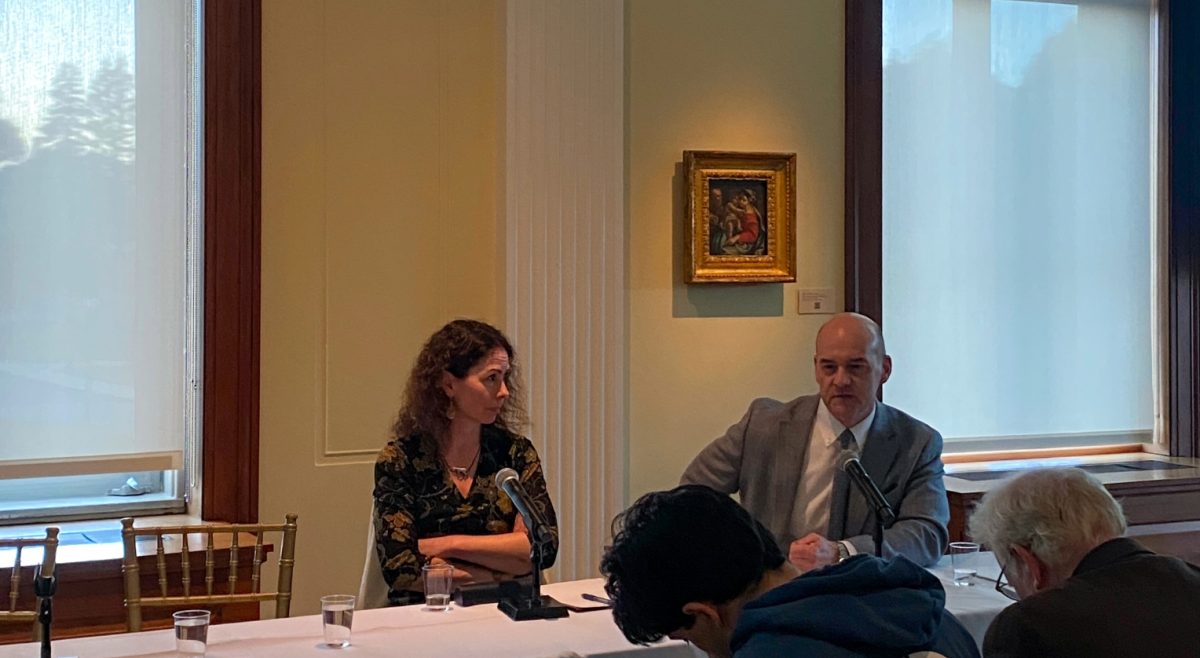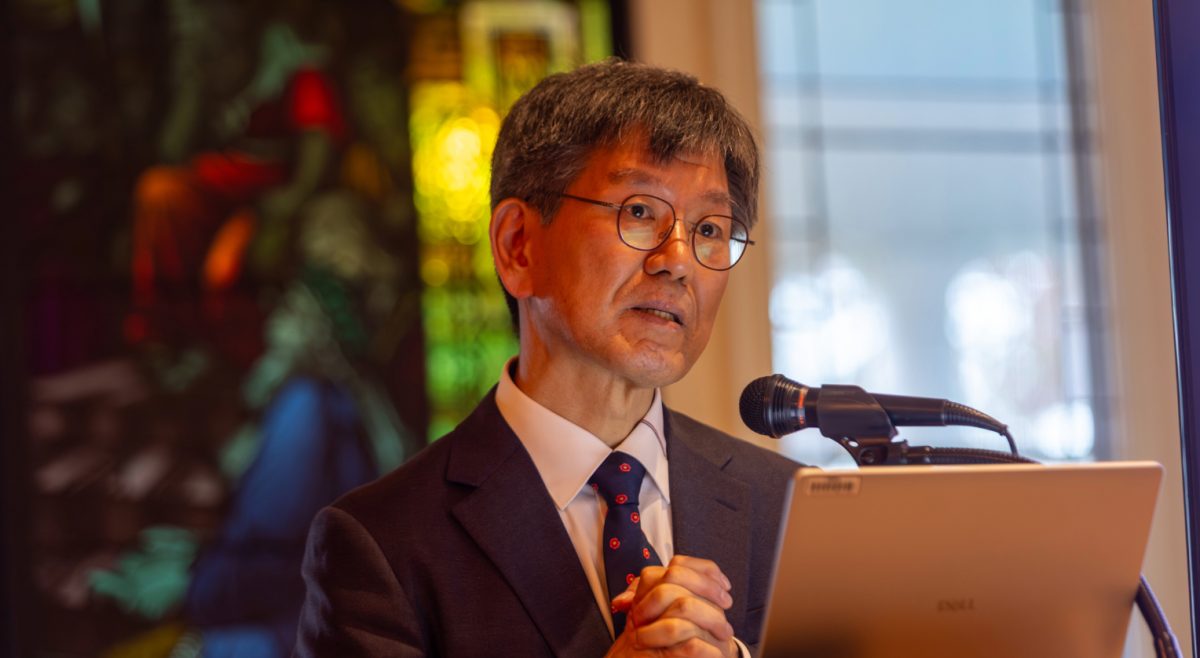Peter Coquillette, CSOM ’26, and Skyler Safriet, MCAS ’26 hosted a Braver Angels dialogue Monday, bringing students together to discuss self-censorship on campus.
“In trying to spare students from this discomfort of different ideas, we risk depriving them of the very challenges that build resilience, wisdom, and the ability to engage across differences,” Coquillette said.
The dialogue comes after BC ranked seventh lowest out of 257 universities in the Foundation for Individual Rights and Expression (FIRE)’s 2026 College Free Speech Rankings. Among the students surveyed in the report, 72 percent reported self-censoring during class discussions.
BC students organized the event with support from the the College Debates and Discourse Alliance—a collaboration between three non-profits—Braver Angels, the American Council of Trustees and Alumni, and BridgeUSA—that aim to promote free expression and the respectful exchange of ideas on college campuses.
The dialogue aimed to be a safe space where students could freely express their views about self-censorship on campus and advocate for solutions without fear of judgment, according to organizers.
It followed a set of community guidelines and an amended style of parliamentary procedure, with participants referring to the moderator, Mae Rum, a program coordinator for the College Debates and Discourse Alliance, as “madame chair” for the duration of the conversation.
“In this campus dialogue, I want to really emphasize that we’re here in good faith,” Rum said. “We’re here to come together and not discourage people from sharing what they truly believe.”
The first question asked attendees what they believed BC could do to address self-censorship and promote civil discourse on campus. Students were invited to the podium to share their perspectives, and answers ranged from exploring the root causes of self-censorship to questioning whether it is an issue at all.
One student said self-censorship stems from concerns about future job prospects.
“As much as I might want to speak my mind based on my principles, if I have to factor in the fact that a future employer might see this, that’s going to drastically affect what I’m willing to share and how much I’m willing to put myself out there,” said the student.
The conversation then shifted to possible solutions. This segment featured more interaction between attendees, allowing them to present solutions and answer questions, while also addressing potential drawbacks raised by the audience.
One speaker suggested that self-censorship is not a University-based issue, but rather requires students themselves to become more assertive in voicing their opinions.
“I think the root cause of this issue is just a lack of faith in ourselves and a fear of jumping out and expressing our opinions—a fear of being canceled or having people mess with your reputation.”
Some students’ concerns stemmed from the nature of the community at BC and fear of being ridiculed. Others raised alarm about the overstatement of professors’ opinions and beliefs in some classrooms, prompting silence from students. Students also pointed to a lack of conversation in STEM-oriented classes.
Another speaker called on BC administrators to take action in promoting free expression on campus.
“The administration needs to be an active participant in fomenting a culture of free speech to allow us to actually not only understand what BC’s identity is, but help us prosecute the fundamental questions of today,” the student said.
One speaker, a Portico teaching assistant, suggested increasing the weight of class participation grades to motivate students to share their views more freely in discussions.
“Unfortunately, we just have to face the reality of our incentive structure here at BC,” the speaker said. “We want to get good grades, we want to go to grad school, and we want to get good jobs at the end of it. In order to encourage students to share their views, I think they need to be incentivized.”
Coquillette and Safriet said they are planning more events like the Braver Campus Dialogue in the near future.
“Learning best happens when you inevitably encounter opposing ideas and have to either defend your beliefs or accept new ones,” Safriet said. “But that learning can’t happen if we hold back what we believe for fear of repercussion or out of a total lack of desire to engage in civil, respectful discussion with those that we disagree with.”

